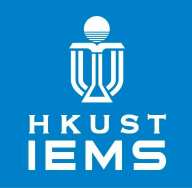The presentation will include the results of studies conducted by the IBS team as part of the World Bank’s Network for Jobs and Development programme. Piotr Lewandowski will talk about the research on routinisation of labour in CEE countries, its connection to technological progress, upskilling and occupational structure changes. The research was conducted by a team consisting of: Piotr Lewandowski, Roma Keister, Wojciech Hardy, Szymon Górka and resulted in, among others, the following publications:
- A routine transition? Causes and consequences of the changing content of jobs in Central and Eastern Europe
- Technology Or Upskilling? Trends In The Task Composition Of Jobs In Central And Eastern Europe
- Do entrants take it all? The evolution of task content of jobs in Poland
video broadcast
***
Event description from the HKUST IEMS website:
Recent literature argues that in the US modern technologies replace jobs intensive in routine, codifiable tasks, and wipe out the middle-skilled employment. The evidence whether it is also the case in emerging economies is still scarce. In order to bridge this gap, I analyse the changes in the task content of jobs in 10 Central and Eastern European countries (CEE) between late 1990s and middle 2010s. I find that the CEE countries witnessed rising intensity of non-routine cognitive tasks, and a decreasing intensity of manual tasks. However, most of them experienced a rise in routine cognitive tasks, a trend absent in the most advanced economies. I assess the relative role played by education and technology in these developments. I also analyse the contribution of structural changes and occupational changes. I identify two groups of workers whose jobs depend most on performing routine cognitive tasks, who jointly represent 33% of workers in CEE, and are likely to be affected by future technical progress.


